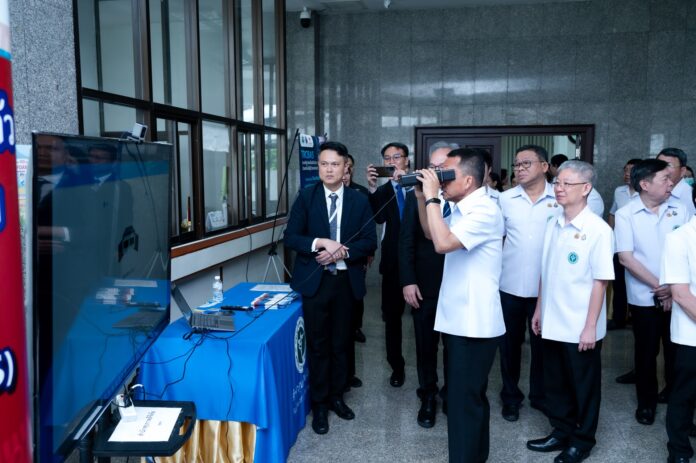Thailand has launched a new biometric system to help identify undocumented migrants, aiming to improve both healthcare access and humanitarian support. The project was formally introduced on September 4 during a signing ceremony led by Public Health Minister Somsak Thepsutin. Officials explained that the technology will be used to collect and verify the identities of people who do not have official documents, including migrant workers, ethnic minorities, and those fleeing conflict along the country’s borders.
Minister Somsak said that many undocumented migrants are not included in Thailand’s health records, which means they often miss out on vital vaccines, medical care, and even disaster relief. By registering them through biometric data, the government hopes to close this gap and make sure everyone has equal access to essential health services. This step, he added, is not only about public health but also about treating people with dignity and fairness.
The new system is called the Thai Red Cross Biometric Authentication System, or TRCBAS. It was created in partnership with the Thai Red Cross Society and the National Science and Technology Development Agency (NSTDA). Using both iris recognition and facial recognition, the system provides a reliable way to identify people even without traditional documents. The technology will also make it easier for healthcare workers to deliver the right services to the right people.
Statistics highlight the scale of the challenge Thailand is facing. According to the Foreign Workers Administration Office, as of July 2025, the country had 2.22 million registered migrant workers. Out of this number, more than one million were undocumented. Officials believe that introducing biometric technology will benefit not only these individuals but also national public health efforts, especially in areas like disease prevention and emergency response.
NSTDA President Sukit Limpijumnong explained that the system was developed by researchers from the National Electronics and Computer Technology Centre in collaboration with the Thai Red Cross. He stressed that iris data is especially valuable because it is highly unique, very durable, and almost impossible to fake. This makes it one of the strongest identifiers for protecting both health security and humanitarian needs.
The government plans to roll out the system in stages. It will first be expanded to disease control offices in large cities, as well as public hospitals in provinces such as Samut Sakhon, Tak, and Mae Hong Son. Private hospitals that conduct medical check-ups for migrant workers will also be included in the program. This expansion is expected to improve healthcare delivery in areas where migrant populations are high.
So far, more than 200,000 migrant workers have already been registered under TRCBAS, with an impressive accuracy rate of 99.75 percent. Authorities say this shows that the technology is both reliable and practical. They believe that with wider use, the system will ensure migrants can receive medical services quickly and safely, while also helping Thailand strengthen its public health system against disease outbreaks.
Officials and health experts agree that this biometric system will play a major role in improving healthcare access for undocumented migrants while also supporting Thailand’s humanitarian commitments. It is seen as a modern solution to a long-standing problem, bringing technology and compassion together to protect both individuals and society as a whole.

